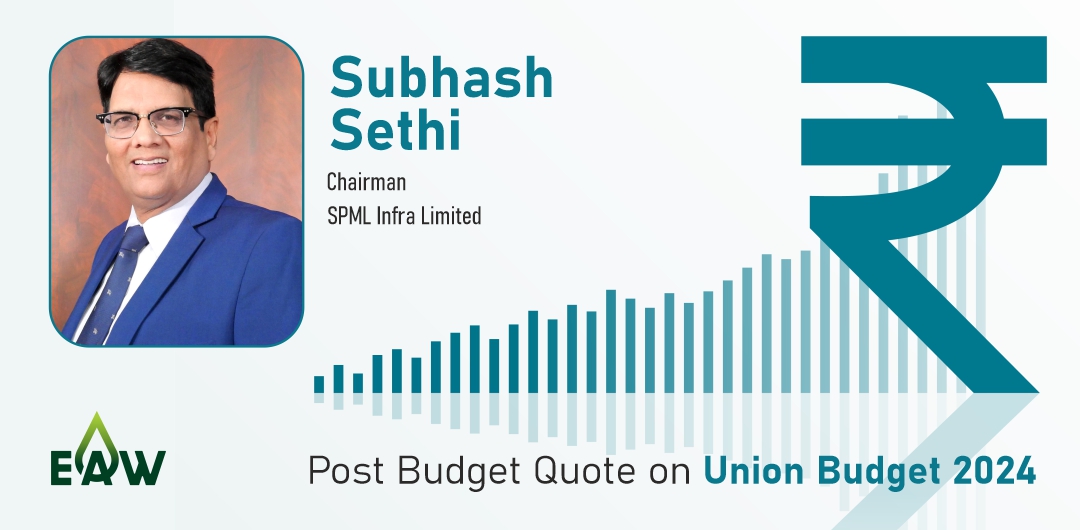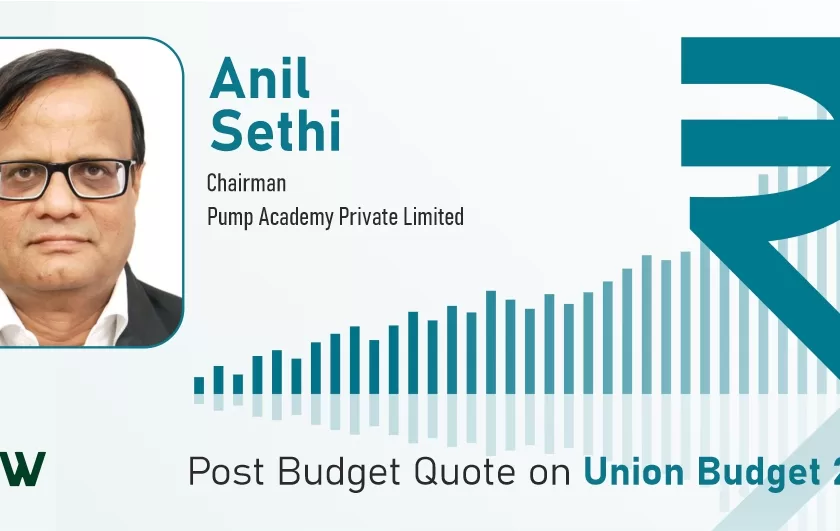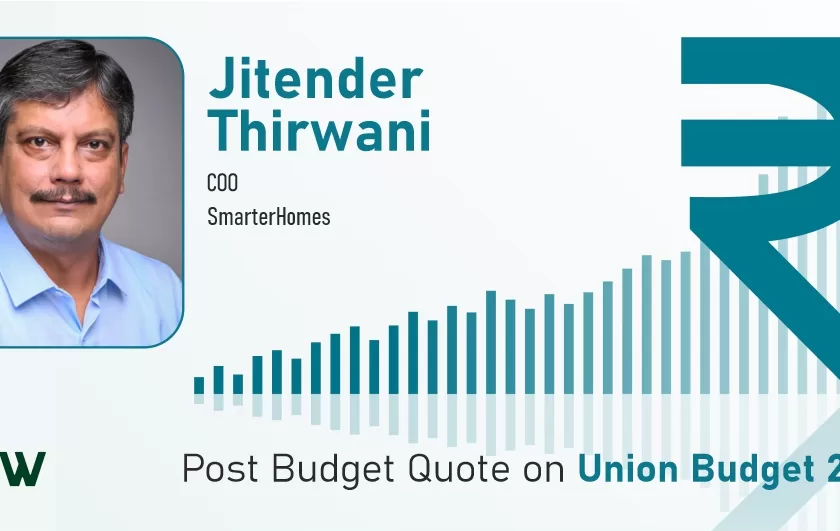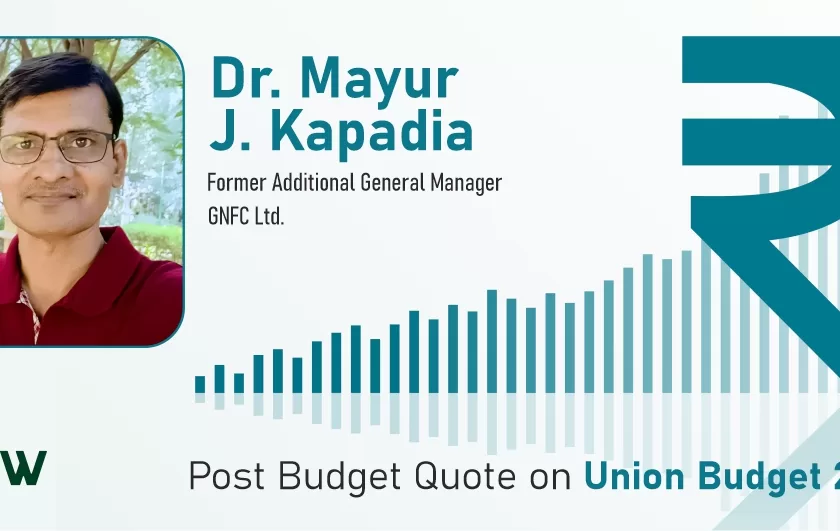By Subhash Sethi, Chairman, SPML Infra Limited
Infrastructure development is a fundamental driver of economic progress, forming the backbone of a nation’s growth. Robust infrastructure facilitates increased productivity, efficiency, and connectivity, thereby fostering favourable environment for economy to thrive. By investing in and enhancing essential physical structures, such as road, rail, air and water transportation, energy, communication, sanitation, water facilities etc. can create an environment conducive to economic advancement. Improved infrastructure not only facilitates smoother business operations but also attracts investments, fosters innovation, and boosts overall GDP.
The Interim Budget 2024, presented by Union Finance Minister prioritizes key sectors such as infrastructure, agriculture, green growth, railways, youth, and women empowerment. The allocation for capital expenditure in 2024-25, dedicated to infrastructure development sees an 11.1 percent increase, reaching Rs.11,11,111 crore, equivalent to 3.4 percent of the GDP.
The Hon’ble Prime Minister hailed the Interim Budget saying, “This budget is a reflection of the aspirations of Young India” and highlighted two significant decisions taken in the budget: a fund of Rs. 1 lakh crore announced for research and innovation, and extension of tax exemptions for the Startups. It is a very significant move to foster innovation and provide support to entrepreneurs.
The Budget 2024-25 has allocated a marginally enhanced outlay of Rs.2.78 lakh crore for the roads & highways sector. This indicates the government’s focus on the road sector and enables the completion targets for the projects under the Bharatmala and National Infrastructure Pipeline.
The FM has allocated Rs.2.55 lakh crore for railways to implement three major economic railway corridor programs, energy, mineral, and cement corridors, port connectivity corridors, and high traffic density corridors aimed at enhancing logistics efficiency and reducing costs.
As part of the green growth and promotion of renewable energy, the rooftop solar program aims to provide 300 units of free electricity every month to 10 million households in the country. The constant focus on green growth, especially in the promotion of electric transport and the development of charging infrastructure, continues to steer India towards a sustainable and environmentally conscious development path.
The initiative to build 20 million houses under the PM Awas Yojana and the progress of the Pradhan Mantri Awas Yojana (Grameen) with an additional 20 million homes planned to be built over the next five years, is particularly noteworthy.
The Ministry of Jal Shakti has been allocated Rs.98,418 crore. Within this, the Jal Jeevan Mission scheme is granted Rs.69,926 crore, while Swachh Bharat Mission Rural projects has received Rs.7,192 crore. Additionally, Rs.10,400 crore is allocated for the continuation of projects under the Atal Mission for Rejuvenation and Urban Transformation (AMRUT). These funds will be utilized for developing rural and urban water supply and sewerage infrastructure, promoting green spaces in urban areas, and mitigating pollution through improvements to the public transport system.
In the interim budget for 2024-25, Rs.5000 crore has been allocated to sustain Swachh Bharat Mission (Urban) projects, aiming to enhance the cleanliness of cities. Additionally, an allocation of Rs.10,400 crore has been earmarked for the Smart Cities Mission, focusing on the development of cities with core infrastructure, a sustainable environment, and an improved quality of life.
The government’s initiatives to enhance port connectivity, alleviate congestion in busy rail corridors, and revamp metro rail systems represent positive strides in infrastructure development. Emphasis on a green economy, bolstering the electric vehicle ecosystem, promoting domestic tourism, and establishing multi-modal logistics corridors will help India propel towards the vision of a developed nation, Viksit Bharat, by 2047.
SPML Infra Limited views this budget as a forward looking and funding for the future through infrastructure development. The budgetary allocations and business-friendly measures are anticipated to not only enhance the standard of living for millions but also generate abundant opportunities for economic and social development.





